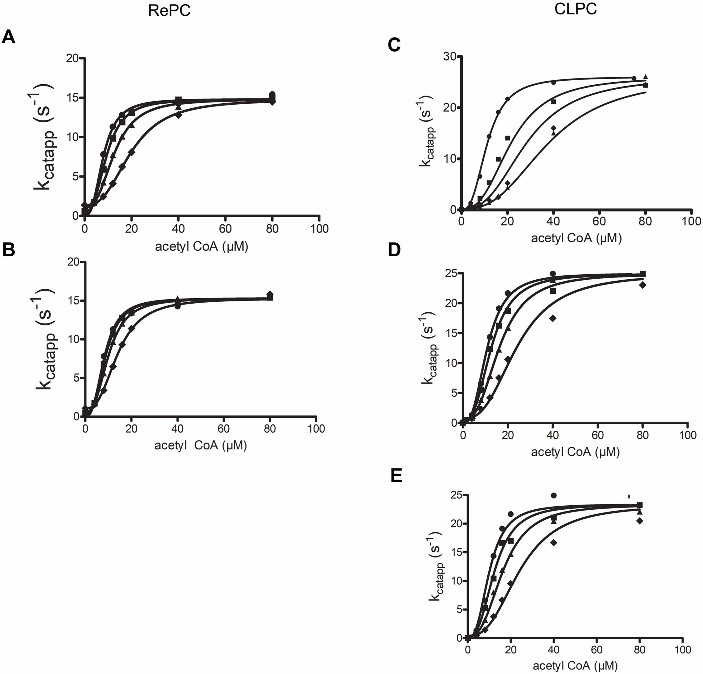
Pyruvate carboxylase (PC) (EC 6.4.1.1) is a biotin-dependent carboxylase which catalyzes the ATP-dependent carboxylation of pyruvate to form oxaloacetate which is an important precursor for several metabolic pathways including gluconeogenesis, lipogenesis, neurotransmitter synthesis and glucose-induced insulin secretion from pancreatic β-cells. Dysregulation of PC expression is involved in human pathogenesis such as type 2 diabetes, obesity and several types of cancer. Inhibition of PC activity could be a therapeutic approach for the treatment of these human diseases.
In collaboration with Professor Paul Attwood at School of Molecular Sciences, The University of Western Australia, Professor Sarawut Jitrapakdee’s research team has investigated the role of triphosphate group of TNP-ATP in allosteric activation and inhibition of acetyl-CoA-dependent activation in PC from bacteria (Rhizobium etli) and vertebrate (chicken) enzymes. They found that reduction in the number of phosphate groups in the derivatives of TNP-ATP decreased their binding affinity to bacterial and vertebrate enzymes relative to TNP-ATP, resulting in lower activation efficacy. Moreover, enzyme from both bacteria and vertebrate required at least mono- and diphosphate groups respectively to activate the catalytic activity of these enzymes. Reduction in the number of phosphate groups also negatively affected inhibition of enzymatic activation by acetyl-CoA in both sources. It appears that the mechanisms of activation and inhibition of PCs by TNP-ATP and its derivatives are different since although TNP-adenosine did not activate bacterial enzyme and TNP-AMP did not activate vertebrate enzyme, they did inhibit acetyl-CoA activation of these enzymes. The broad effect of TNP-ATP and its derivatives on PCs provides possible leads for the development of drugs to target human metabolic diseases and cancers involving aberrant PC expression or activity.
References
Rattanapornsompong K, Sirithanakorn C, Jitrapakdee S, Attwood PV. The role of the phosphate groups of trinitrophenyl adenosine 5′-triphosphate (TNP-ATP) in allosteric activation of pyruvate carboxylase and the inhibition of acetyl CoA-dependent activation. Arch Biochem Biophys. 2021 Oct 30;711:109017. doi: 10.1016/j.abb.2021.109017
| Relevant SDGs | |
|---|---|
 |
|
| BC investigator | |
 Prof. Sarawut Jitrapakdee Prof. Sarawut Jitrapakdee |
